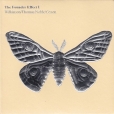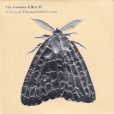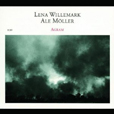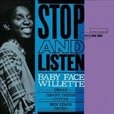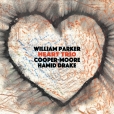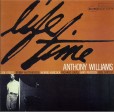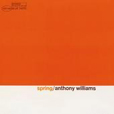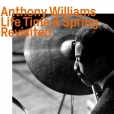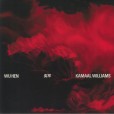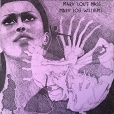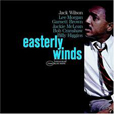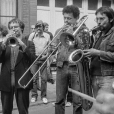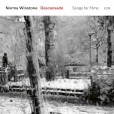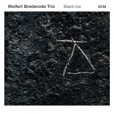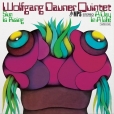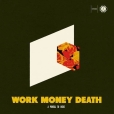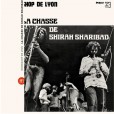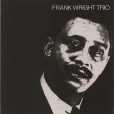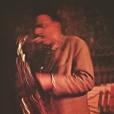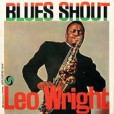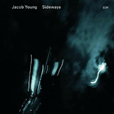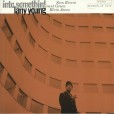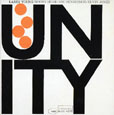Your basket is empty

The Nordan Project, combining Swedish folk and jazz improvisation. With Palle Danielsson on bass, from various Charles Lloyd, Keth Jarrett and Jan Garbarek lineups.
‘Classic Vinyl’ series.
Parker playing doson ngoni, dudek, and flutes of bamboo, cedar & walnut; Cooper-Moore on his hand-crafted ashimba and harp; Hamid Drake on frame drum and drum kit.
‘Balancing music, antithetical to destruction. Music to draw sustenance from. Some measure of fortitude, at least, for compassionate souls in the elevating struggle against increasingly inextricable imposed realities that parse a human being’s value solely on what they are able to consume.
‘This is music for sunrise and sunset. Daily music. Healing, centering, mantra, heart music.’
As Parker puts it in his sleevenote: ‘The theory behind this music is the music itself. Empty and fill the heart and soul with sound, letting it dance. Without pretense. We are trying to get to a flow - earth, sky, and flowing water sounds that jump out of the painting… The story, the plot is, life is beautiful. Must be to be life. War is death fueled by hate. How do we stop war? Never start one.’
With Wayne Shorter, Sam Rivers, Herbie Hancock and Gary Peacock.
Classic Vinyl series.
Her funky, spiritual jazz masterpiece; our favourite of her albums.
This LP is a facsimile edition of the original release on Mary Records.
Hippie dippy Indo-Jazz, aka Take Off Your Clothes To Feel The Setting Sun, complete with fuzz guitar and sitar courtesy of Siegfried ‘Vampyros Lesbos’ Schwab, and reverbed chant-along vocal chorus. Plus a reined-in, blues-rock cover of The Beatles’ A Day In The Life.
From 1969, with Eberhard Weber playing bass and electric cello.
New transfers from the master tapes; cut at Abbey Road; pressed at Pallas; handsomely sleeved.
With the arrival of clarinettist-saxophonist Louis Sclavis in 1973 (and the departure of trumpeter Jean Mereu in 1975), the Workshop De Lyon was born of the Free Jazz Workshop.
A warmly accessible, beautifully performed, joyous mixture of wailing improv and propulsive, rootical preparations, this second album derives its upful, digressive theatricality from the Arts Ensemble Of Chicago, and its urgent sublimification of vernacular rhythms and melodies from Albert Ayler. Wild and free, but grounded in stuff like Bechet, Monk and George Russell.
Terrific.
His 1966 debut (with Henry Grimes on bass), after ESP founder Bernard Stollman saw him play as John Coltrane’s guest at the Village Vanguard.
Clifford Allen commented in All About Jazz: ‘Wright was one of the forerunners of the multiphonics-driven school of saxophonists to follow the direction pointed by Ayler, but with a more pronounced bar-walking influence than most of his contemporaries. Whereas Ayler’s high-pitched wails, wide vibrato and guttural honks all belied an R&B pedigree, his solos still contained the breakneck tempos and facility of bebop… Wright, on the other hand, offers his honks and squawks with a phraseology derived from the slower, earthier funk of R&B and gospel music… The opening The Earth starts with a brief vibrato-heavy and bluesy slow theme on unaccompanied tenor that quickly erupts into a frantic screamer of a solo, a mix of buzzing upper-register cries and low bleating honks, occasional recognizable stock R&B phrases making their way into the melange… Unlike Ayler, there is not a significant amount of solo construction, for it appears Wright was throwing together ideas in a spirit of jubilation.’
His second ESP, one year after the Trio date, offering ‘passionate explorations of four of his originals, plus Jones’ The Lady. Rather intense at times, these emotional performances still sound groundbreaking three decades later. One of Frank Wright’s finest recordings’ (AllMusic).
Intriguing quartet, with Jacques Coursil and FW’s Cleveland homie Arthur Jones — two BYG mainstays in the making — and bassist Steve Tintweiss and Muhammad Ali both on fire.
A welcome reissue of this 2013 collaboration between Onra — the Chinoiseries producer — and Buddy Sativa. Deep, spiritual jazz from the heart. Lonnie Liston Smith is a guiding light.
The Norwegian-American guitarist — sparsely beautiful — with trumpeter Mathis Eick, and the great drummer Jon Christensen, amongst others.
The jazz organist’s masterpiece — with Woody Shaw, Joe Henderson and Elvin Jones in 1965.
Young’s playing is steeped in the new thing — especially JC — but pulsating, intense, and sparking with a restless, propulsive creativity which would lead him to collaborations with Jimi Hendrix, Carlos Santana, Bitches-Brew Miles and co, in just a few years time.
Three brilliant compositions by Shaw — including The Moontrane, and an arrangement of Kodaly — a Joe Henderson, a Monk, and Hammerstein and Romberg’s Softly As A Morning Sunrise.
